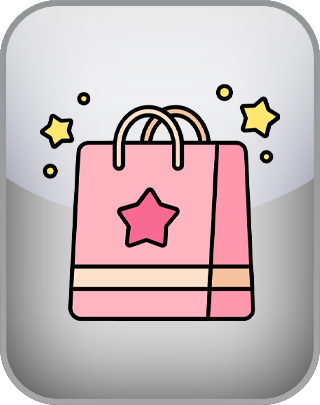Compulsive Shopping Test (YBOCS-SV)
The Yale-Brown Obsessive-Compulsive Scale modified for compulsive buying (YBOCS-SV) is a psychometric tool designed to assess the severity and impact of impulsive buying behaviors. The YBOCS-SV focuses on shopping-related obsessions and compulsions. It evaluates factors such as the frequency, distress, and interference caused by compulsive buying, providing clinicians with a reliable measure to diagnose, track, and guide treatment for individuals affected by compulsive buying disorder. To take the test, enter your input below.
Your privacy is respected, and all results are anonymous.
Question 1 of 20
It is challenging for me to dismiss my thoughts on shopping.
| Disagree | Agree |
NEXT
The Yale-Brown Obsessive-Compulsive Scale modified for compulsive buying (YBOCS-SV) is a specialized assessment tool designed to evaluate the cognitive and behavioral dimensions of compulsive buying disorder (CBD). Adapted from the original YBOCS, which is widely used to measure the severity of obsessive-compulsive disorder (OCD), the YBOCS-SV focuses on symptoms specific to compulsive shopping and spending behaviors.
The scale consists of questions that assess the frequency, intensity, and interference of compulsive buying thoughts and behaviors in an individual's daily life. It examines key factors such as the time spent on buying-related activities, the distress caused by these behaviors, and the individual’s ability to control or resist urges to buy. Additionally, it evaluates the degree to which compulsive buying impacts social, occupational, or personal functioning.
The YBOCS-SV is often used in clinical settings to diagnose and measure the severity of compulsive buying disorder, providing a structured and quantifiable approach. It is valuable for tracking changes over time, particularly in response to therapeutic interventions. By offering insights into the underlying cognitive processes and behavioral patterns of CBD, the YBOCS-SV plays a crucial role in tailoring effective treatment plans, such as cognitive-behavioral therapy or pharmacological interventions, for individuals struggling with this condition.
Compulsive shopping, or compulsive buying disorder (CBD), is a behavioral condition marked by an overwhelming urge to shop that disrupts daily life. Unlike occasional overspending, it involves repetitive, uncontrollable purchases often driven by emotional distress, leaving individuals struggling with guilt, debt, or strained relationships.
This condition is not officially recognized in the DSM-5, making it challenging to diagnose. Proposed diagnostic criteria include experiencing intrusive thoughts or urges to shop, loss of control over buying behaviors, and purchasing items without the intention to use them. Individuals may shop excessively to regulate emotions, despite facing negative consequences such as financial strain or relationship issues. Emotional distress when unable to shop and continued purchasing despite harm are also key indicators. These criteria highlight the complex interplay of emotional regulation, impulse control, and behavioral patterns central to compulsive shopping.
Triggers like stress, anxiety, or boredom often fuel this behavior, while cultural norms and constant advertising amplify the urge to shop. Neurological factors, such as the brain's reward system, can create a cycle where shopping becomes a temporary escape but deepens the problem over time. The consequences are serious, including financial hardship, damaged relationships, and emotional struggles like shame and low self-esteem. Left unchecked, compulsive shopping can spiral into significant life challenges, making intervention essential.
Effective treatment includes cognitive-behavioral therapy (CBT), which helps individuals identify triggers, change thought patterns, and develop healthier habits. Financial counseling and support groups can also assist in regaining control and rebuilding stability. Understanding compulsive shopping as a legitimate disorder encourages people to seek help. Early intervention and awareness can prevent further harm, offering a path toward recovery and a healthier relationship with spending.
As the publishers of this free test, which allows you to screen yourself for compulsive shopping, we strived to make the test as reliable and valid as possible by subjecting this test to statistical controls and validation. However, free online quizzes such as the present test do not provide professional assessments or recommendations of any kind; the test is provided entirely “as-is.” For more information about any of our online tests and quizzes, please consult our Terms of Service.
References
- Monahan, P., Black, D. W., & Gabel, J. (1996). Reliability and validity of a scale to measure change in persons with compulsive buying. Psychiatry Research, 64(1), 59–67.

